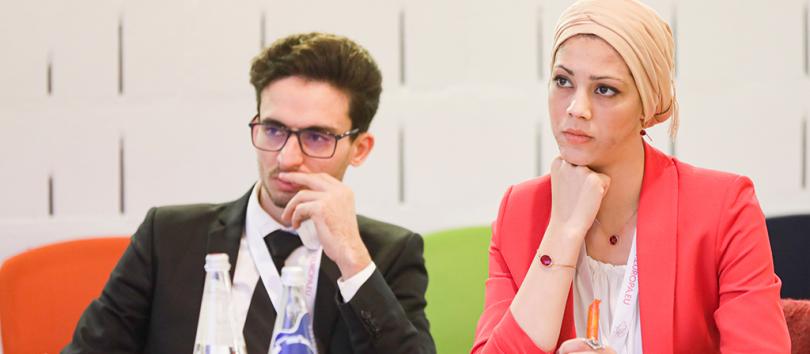
Partnering for better education: the Union for the Mediterranean
The Union for the Mediterranean (UfM) is a regional exchange forum and one of the most significant partnerships for the European Training Foundation. Active since 1995, it has been working to strengthen regional cooperation, dialogue and the implementation of projects and initiatives, pursuing the objectives of stability, human development and integration, including:
- Supporting entrepreneurship and the creation of decent jobs
- Facilitating public-private synergy
- Creating an inclusive labour market
- Investing in quality education systems to support employment.
Fostering dialogue in the Mediterranean countries has not only local but global benefits. The centrality of this region in the world scene and its stability - economic, employment and political - are crucial factors in global sustainable development. The first step towards achieving this goal is to establish active cooperation between the two shores of the Mediterranean. The Union - which brings together governments, local authorities, NGOs and international donors, universities, civil society and the private sector - has helped implement more than 50 projects. UfM members identify unanimously those with particular innovative elements and the potential to create new synergies and partnerships.
Why a partnership with ETF is essential for cooperation between the EU and the Mediterranean countries
The Union for the Mediterranean was established through the Barcelona Process. The European Training Foundation collaborates with the UfM Secretariat and the European Commission thanks to its experience, derived from technical input and in-depth studies. For example, it has conducted several analyses on the future of work in Morocco, Tunisia, Albania, Israel and Turkey, from the agricultural sector to the automotive industry.
Peace and security in the region is the long-term goal. Still, the means to achieve it is developing human capital and the skills needed to meet the socio-economic challenges. Two years ago - just before the outbreak of the COVID19 pandemic - ETF organised together with UfM and Deutsche Gesellschaft für Internationale Zusammenarbeit (GIZ) GmbH in Turin the Future of Work and Skills for the Future event. The pandemic has brought new challenges to face. Nevertheless, thanks to the work done, it is possible to make the countries of the Euro-Mediterranean area more resilient.
"It is still relevant today, and even more so with the pandemic," says Sabina Nari, Human Capital Development Expert at ETF, "where adaptation to changes, transformations and sudden shocks is of paramount importance to anticipate and address persistent unemployment, inactivity and exclusion".
The challenges of the future: the labour market as a vector for peace and security
The road to making work and education inclusive, accessible and sustainable is challenging but not impossible. Partnerships such as ETF and UfM make it possible to anticipate difficulties and address them together. Ongoing work - in which ETF collaborates with UfM as an observer and technical contributor - to analyse progress towards the goals of the 2030 Agenda is essential to provide the most up-to-date policy recommendations. ETF constantly produces reports to identify best practices and review education systems to follow the Torino Process. The report for 2018-2020 was recently published for the South Eastern Mediterranean countries, analysing the challenges of human capital development and VET policies.
Did you like this article? If you would like to be notified when new content like this is published, subscribe to receive our email alerts.